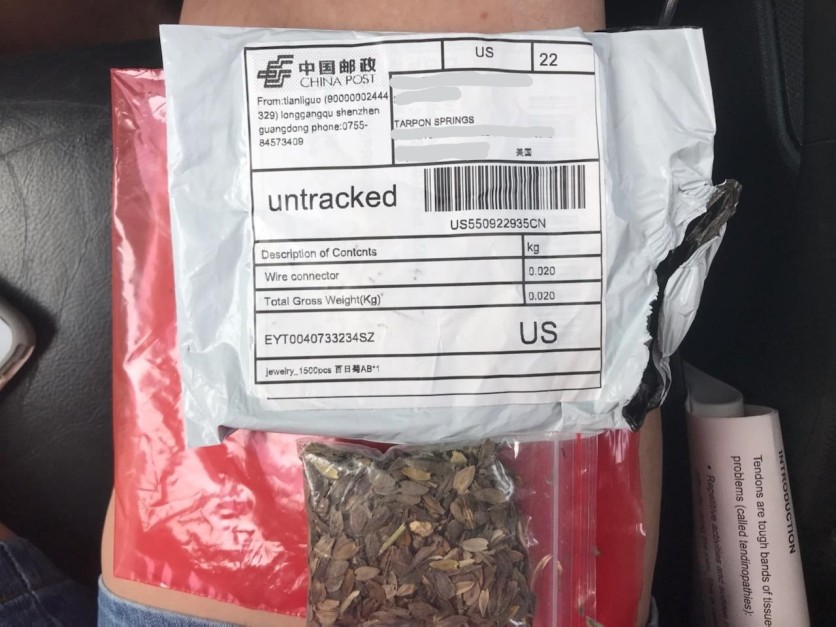Random houses around the US have received mysterious packages from China late last month, containing random objects like cheap jewelry, socks, and mysterious plant seeds, which the Department of Agriculture has finally identified.

USDA Identifies Seeds Mysterious Packages
In a report by the Daily Mail, USDA said they had identified more than a dozen of these plant seeds included in the mysterious package.
"We have identified 14 different species of seeds, including mustard, cabbage, morning glory and some herbs, like mint, sage, rosemary, lavender, and then other seeds like hibiscus and roses," Osama El-Lissy from the USDA's Animal and Plant Head Inspection Service (APHIS) said. "This is just a subset of the samples we've collected so far."
Besides APHIS, the Homeland Security's Customs and Border Protection, along with other agencies, are already investigating the incident and have deemed the packages as part of an apparent scam.
Photos uploaded by the department show that the packages were labeled from China Post, which operates from the official postal service of China.
Read Also : New Study Shows Small Crustaceans That Can Fragment Plastics Into Pieces Smaller Than Cells
DO NOT Plant the Seeds
USDA is still checking all the seed contents from the Chinese package in search of something that could be of threat to the country's security, the environment, or agriculture.
The department has also said that as of now, they don't have enough evidence indicating that this is more than just a "brushing scam" wherein people would receive packages from a particular seller, who will then create false reviews to boost their sales.
As with their initial warning, the authorities and the USDA remain adamant that people who received these plant seeds should not be planted.
They also asked all the recipients of the said package to report and bring the seed packages.
Experts fear that these seeds may be invasive and could destroy and/or overtake native plant and insect species once they grow and thrive.
If you receive such a package, USDA and Better Business Bureau recommend contacting APHIS or your local state plant regulatory official and keep the packaging, especially the labeling, intact and wait for further instructions.
Never open the packet of the seeds, much more plant them or throw them.
Labeling Forged?
China's foreign ministry is also working to investigate this apparent brushing scam, and in a briefing last week, July 28, Wang Wengbin, the spokesperson for the ministry said that the address labels for the packages were forged and that China Post is asking USPS to send the parcels to China for investigation, according to a report by CNN.
Nevertheless, USPS has declined to provide further comment, although they did say they are aware of the packages and are currently working with local, federal, and state partners.
Despite being deemed a brushing scam, the authorities are yet to catch the culprit behind the packages and their intentions.
The parcels have been delivered in random houses across 50 states in the US, but it seems like the scam has also reached Canada as the Canadian Food Inspection Agency is also currently investigating similar reports in the country.
This article is owned by TechTimes
Written by: Nhx Tingson




